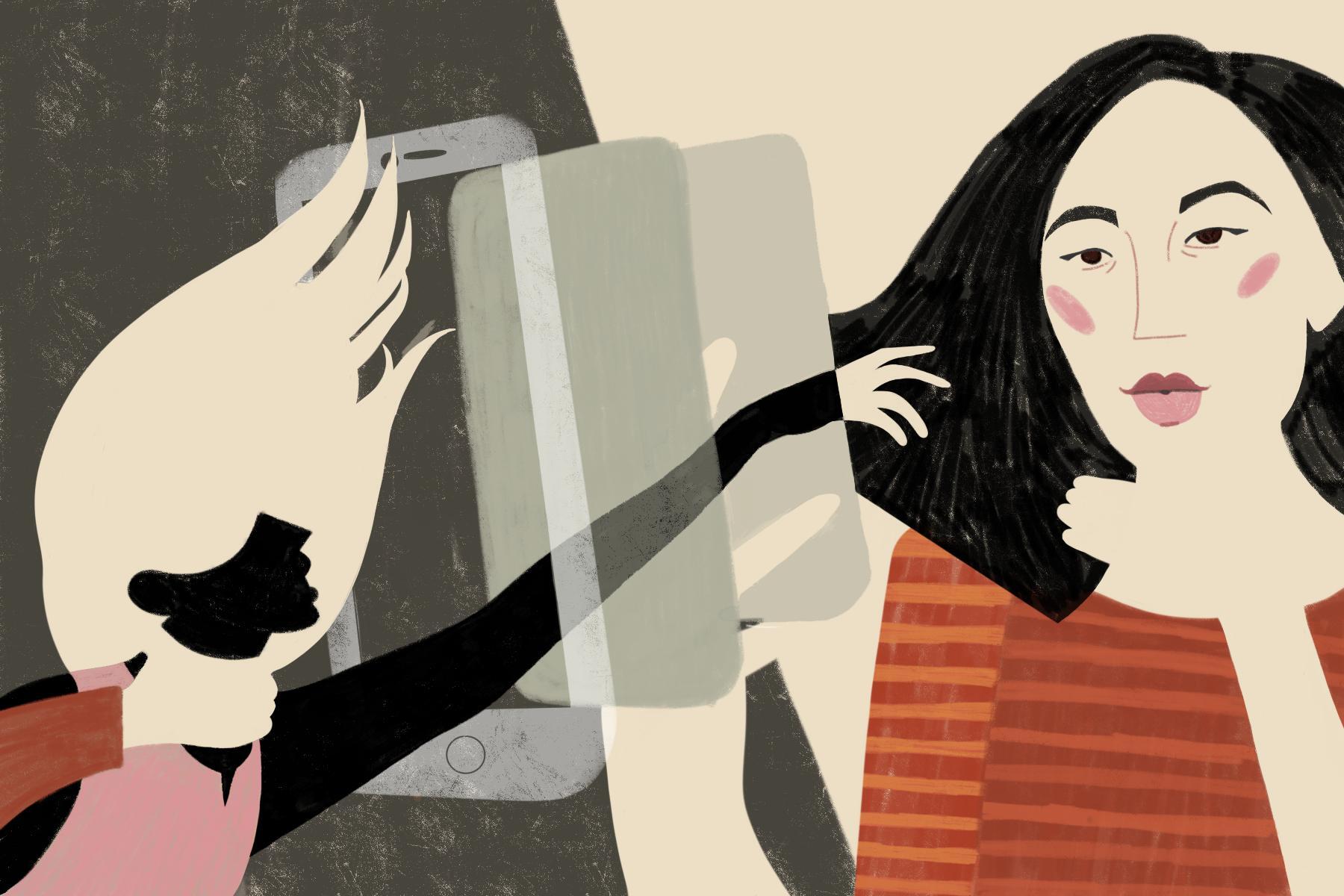Over the past few months of quarantine, a series of trends have taken over Instagram in turn before dying out. First, it was the bingo boards. Then, it was drawing a variety of fruit and vegetables on Instagram’s story feature. A week ago, it was women posting a black and white photo of themselves and tagging it with #womenforwomen and #ChallengeAccepted. At first glance, this seemed like the usual crop of social media empowerment. But the truth is that many people, including some of the posters themselves, didn’t realize the real reason behind the black and white trend.
The challenge originated from the increase in violence against women and femicide in Turkey. Specifically, it was to honor Pinar Gültekin, whose partner beat and strangled her to death. Gültekin’s murder sparked outrage throughout Turkey, causing the public, especially women, to start speaking out against femicide. Black and white prints often display the murdered women on newspapers, TV screens and social media, so Turkish women began posting black and white photos of themselves to stand in solidarity with the victims.
As the movement spread beyond Turkey, however, the original message was lost. Original hashtags that had been used to raise awareness for Turkish femicides like #istanbulsözleşmesiyaşatır and #kadınaşiddetehayır, which translate to “Istanbul Convention saves lives” and “No to violence against women” respectively, were left out.
Celebrities such as Natalie Portman, Kristen Bell, Ivanka Trump and Khloe Kardashian only fanned the flames when they joined in on the challenge without mentioning that the movement stemmed from Turkish femicide. Like many people, they either had no idea that Turkish femicides had fueled the movement, or they had simply chosen to ignore its origins for the sake of promoting their own brand of women empowerment. At the end of the day, the black and white trend became yet another chance for users to post flattering selfies of themselves under the guise of social media empowerment.
With everyone stuck at home, so-called “social media empowerment” that asks little of their participants has only turned into performative activism. The black and white photo trend hasn’t been the only culprit. Before that, it was posting a black square to show solidarity with Black Lives Matter. But even the truth behind the black square was skewed. The trend began under the hashtag #TheShowMustBePaused and was started by two Black women who work in music marketing. The intent was to hold the music industry accountable and to oblige them to empower and support Black artists.
Like the message against Turkish femicide, the message behind #TheShowMustBePaused changed to support Black Lives Matter as a whole. Many of those who posted black squares were unaware of the true message behind it and instead took it to mean being silent on the day of the blackout. However, this was actually the exact opposite of its original intent.
On Blackout Tuesday, The Show Must Be Paused clarified, “The purpose was never to mute ourselves. The purpose is to disrupt.” Even worse, the onslaught of black square posts, many of which used the #blacklivesmatter hashtag, caused posts with important Black Lives Matter information such as protests and petitions to be buried.
#theshowmustbepaused | For more information on how to take action visit https://t.co/vDBp9z7ljq pic.twitter.com/1eJMZ9dWC2
— theshowmustbepaused (@pausetheshow) June 2, 2020
Under the right mindset, posting a black square or a black and white photo on Instagram can be used to show support. But there are better methods to go about social media empowerment. Posting or reposting information is a good way to start. Whether it be lesser known statistics, recent news that you think others would find applicable or alerting others to misinformation, these posts are all infinitely more valuable than a simple black square on your feed. A post of the latter simply shows that you’re jumping on a bandwagon — one you should have been on already. Actually disseminating useful information means that you’re contributing to the dialogue on the topic.
Another way would be showcasing Black people and their trades in order to show support. That could mean sharing local Black-owned stores and restaurants with others, or if you have a particular passion, like reading and writing, art or cooking, you can share information about books written by Black authors, artists or cooks. The goal is to give exposure to Black voices and Black art. By experiencing the stories and creations brought to life by Black people, we can truly begin to understand their life and the diversity that we’re fighting for.
For Turkish femicide, posting a black and white selfie first and foremost makes the post about you and your circle of female friends and family members. It’s no longer about the women who are being murdered in Turkey. Although joining in on the trend can seem fun, indulging in it isn’t helpful to the original cause unless you’re using the original Turkish tags. #istanbulsözleşmesiyaşatır and #kadınaşiddetehayır help the fight against Turkish femicide gain traction in a country where free speech is limited.
Sharing accurate information is only a first step though. Taking the time to sign petitions, join in on protests or even contact lawmakers is harder, but it’s also more worthwhile. Even in countries with fewer freedoms, the people still have a voice, however small it may be. By joining our voices together, we can make the changes that we want to see.
The most important step, however, is educating yourself on the social media trends going on. Instagram is rife with misinformation, and even the best of users may accidentally share misleading posts. Simply trying to keep up with the news and latest trends on the platform isn’t enough. There’s no way to adequately squish enough information to detail all the nuances of real-life events into a single post. Even then, you likely only follow Instagram accounts that favor your views, making it so that you would likely never see the other side’s viewpoint. It’s up to each and every person to take the time to do their own research in order to fully understand the social issues going on in the world before joining in on the conversation. Only then would social media empowerment truly become empowering.
















